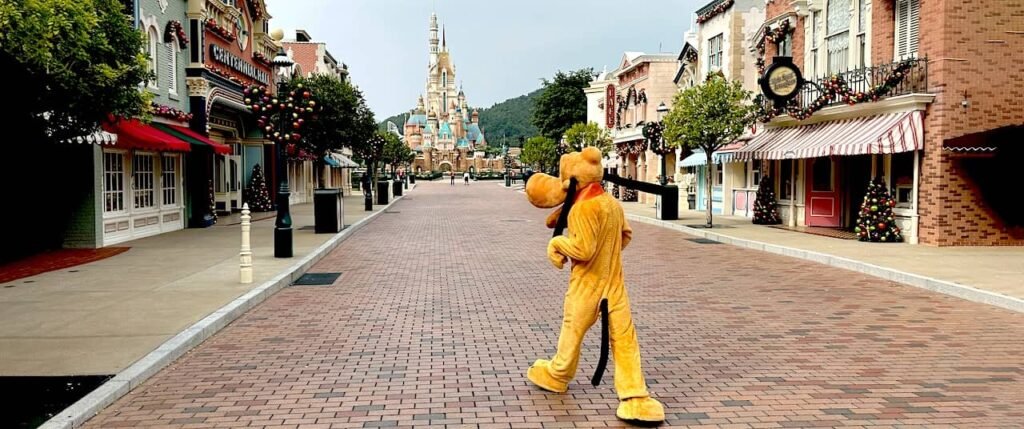The Unfortunate Missed Opportunity at Hong Kong Disneyland: Five Years Later
As we mark the fifth anniversary of a pivotal decision in the theme park industry, it’s time to reflect on the impact that political choices can have on entertainment giants like The Walt Disney Company. On September 23, 2020, the Government of Hong Kong decided not to grant Hongkong International Theme Parks Limited—the operator of Hong Kong Disneyland—the rights to purchase additional land for expansion. This choice effectively halted any plans for a second theme park at the resort, a decision that many now regard as a significant missed opportunity.
The Context Behind the Decision
Five years ago, the world was gripped by the effects of the Covid-19 pandemic. Theme parks, travel destinations, and hotels were shuttered, and the future seemed uncertain. With this backdrop, Hong Kong’s government perceived that the theme park industry was on life support, making the idea of committing valuable real estate to expand an apparently beleaguered business seem risky. Instead of embracing the chance to partner with Disney—a brand synonymous with family-friendly entertainment—the government chose caution.
However, hindsight often reveals the folly of decisions made in fear. Today, as we look back, we see how the landscape has changed. Hong Kong Disneyland has introduced new attractions, such as the much-acclaimed World of Frozen land, effectively breathing new life into the park. Moreover, the announcements for future additions like an Avengers-themed drop ride point to a growing momentum within the resort.
A Look at Hong Kong Disneyland Today
Fast forward to 2023, and the decision to restrict Hong Kong Disneyland’s expansion opportunity seems even more regrettable. The park has demonstrated a robust attendance turnaround, attracting travelers, especially Disney enthusiasts. Many visitors are now discovering the unique, nostalgic experience that Hong Kong Disneyland offers compared to its counterparts in the United States. For an extensive overview, be sure to check our Visitors Guide to Hong Kong Disneyland.
The absence of a second gate at the resort becomes increasingly conspicuous in light of these developments. With the addition of new lands and attractions, the park would have greatly benefited from the increased foot traffic and diversified offerings that a second theme park and accompanying hotels could provide.
The Missed Opportunities
In retrospect, the land adjacent to Hong Kong Disneyland, which is now occupied by the Penny’s Bay Community Isolation Facility from the pandemic, embodies a lost opportunity. Instead of bustling hotels, expansive rides, and a vibrant Downtown Disney shopping area, the site stands as a reminder of decisions made during uncertain times.
Could the park have introduced innovative attractions, created thousands of jobs, and ultimately contributed to a broader economic recovery for Hong Kong? The possibilities are intriguing, and the reality stands in stark contrast. One can only speculate how different the landscape would look today had the expansion plans been green-lighted.
The Theme Park Landscape Post-Pandemic
As the world emerges from the pandemic, many theme parks—including Hong Kong Disneyland—are shifting strategies to attract visitors in unprecedented ways. Adaptations range from health and safety measures to unique entertainment offerings that leverage nostalgia and classic Disney charm. The recent success stories underscore the resilience of the theme park industry and illustrate how demand remains high for immersive experiences.
Moreover, the rising interest in international travel signifies the potential for robust attendance in global attractions, especially those like Disneyland that hold a special place in pop culture. The context of the decision made five years prior, therefore, provides a sobering lesson about how fear and caution can lead to missed opportunities in business.
Lessons for Future Developments
The decision made by the Hong Kong government in 2020 serves as a cautionary tale for stakeholders and policymakers alike. Partnerships with entertainment giants like Disney can bring significant economic benefits, from job creation to tourism revenue. The missed opportunity highlights the importance of adaptability and foresight in making decisions that will impact a region’s economy and tourism landscape.
As the global recovery continues, dialogue between governments and large corporations remains vital. Collaborative approaches that address the intricacies of the current economic climate while recognizing the long-term benefits of expansion are essential for moving forward.
In conclusion, while the past can’t be changed, the future can be shaped by these lessons. Stakeholders must remain open to opportunities that arise and engage in proactive measures that can lead to fruitful partnerships.
Kick off your next adventure! Book theme parks, hotels, or flights now on Expedia—easy, affordable, and fun. Your unforgettable trip awaits! Book Now





